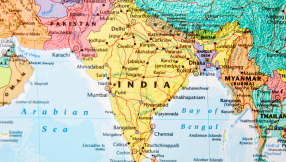North Korea may be significantly expanding its nuclear weapons production and could have added six or more weapons to its stockpile in the last 18 months, a US research institute said on Tuesday.
The Washington-based Institute for Science and International Security (ISIS) estimated last year that North Korea had 10 to 16 nuclear weapons at the end of 2014. It based that conclusion on an analysis of the country's production of weapons-grade uranium and plutonium recovered from spent nuclear fuel.
In revised estimates contained in a report provided to Reuters, the institute's David Albright and Serena Kelleher-Vergantini said North Korea may have added another four to six weapons since then, for a total of 13 to 21 or even more today.
The report said the 13 to 21 estimate did not take into account the possible production of additional highly enriched uranium at a second centrifuge plant thought to exist in North Korea.
"Nonetheless, this exercise, despite not being comprehensive, shows that North Korea could be significantly increasing its nuclear weapons capabilities," the report said, adding that most of the increase could be attributed to the production of weapons-grade uranium.
The report came a week after a senior US State Department official told Reuters that North Korea had restarted production of plutonium fuel, indicating that it planned to pursue its nuclear weapons programme in defiance of international sanctions that followed its fourth nuclear test in January.
Plutonium also can be used to make nuclear weapons.
The institute's report said the group independently confirmed activity inside the radiochemical laboratory at North Korea's Yongbyon nuclear site.
It said commercial satellite imagery from June 8 did not show direct signs, but noted "indirect signatures associated with plutonium-separation" there.
These included the removal of tanks previously spotted in front of the laboratory's reception building and signs that a coal-fired steam generation plant may have been active on June 8.
The report also noted signs of external activity at a site the institute identified as a possible isotope-separation facility that could be used to produce tritium for thermonuclear weapons that North Korea has said it intends to develop.
North Korea vowed in 2013 to restart all its nuclear facilities, including the main reactor and a smaller plant at Yongbyon, which was shut down in 2007 as part of an international disarmament-for-aid deal that later collapsed.
North Korea announced at a rare congress of its ruling Workers' Party last month that it would strengthen its nuclear weapons capability.













